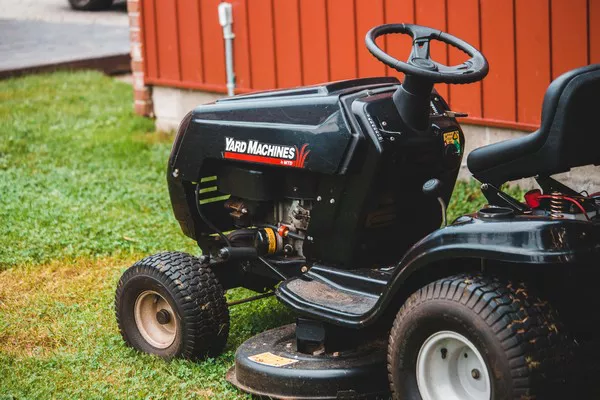Maintaining the peak performance and longevity of your Briggs and Stratton lawn mower is contingent upon making the right decisions, and one of the most critical choices involves the type of oil you use. The oil you select plays a pivotal role in preserving the engine’s efficiency, reliability, and overall health. In this in-depth article, we will explore the nuances of choosing the appropriate oil for your Briggs and Stratton lawn mower, considering factors such as viscosity, temperature conditions, and manufacturer recommendations.
1. The Significance of Engine Oil:
Engine oil is the lifeblood of your Briggs and Stratton lawn mower, serving vital functions that impact its performance and longevity.
Lubrication: Engine oil minimizes friction between moving parts, reducing wear and tear that can lead to premature engine failure.
Cooling: The oil aids in heat dissipation, preventing the engine from overheating during operation.
Sealing: Properly chosen oil maintains effective seals, preventing dirt and contaminants from infiltrating the engine.
Cleaning: Quality engine oil helps to minimize the buildup of sludge and deposits, ensuring consistent performance.
2. Viscosity: The Key Factor:
Viscosity, denoted by the “W” and numerical values on oil containers (e.g., 10W-30), is a critical factor in determining an oil’s suitability for your lawn mower.
Warm Climate Performance (SAE 30): SAE 30 oil offers a single viscosity rating suitable for warmer conditions. It retains its consistency even in higher temperatures.
Versatility and Cold Start Protection (10W-30): The “10W” in 10W-30 oil indicates its viscosity at lower temperatures. This oil provides better protection during cold starts and adapts well to varying climates.
3. Understanding SAE 30 Oil:
SAE 30 oil is a conventional choice for small engines, offering certain benefits that make it a reliable option for your Briggs and Stratton lawn mower.
Steady Viscosity: SAE 30 maintains a consistent viscosity in warmer temperatures, ensuring smooth lubrication even during extended use.
Simplicity and Cost-Effectiveness: This oil type is cost-effective and widely available, making it a practical choice for routine lawn mower maintenance.
Moderate Climate Suitability: If you primarily operate your lawn mower in moderate to warm climates, SAE 30 is a suitable option.
4. The All-Weather Versatility of 10W-30:
10W-30 oil has gained popularity due to its adaptability across a range of temperatures.
Cold Start Protection: The “10W” indicates its performance in colder conditions. This oil flows more effectively during cold starts, reducing wear during ignition.
Year-Round Applicability: 10W-30 oil can serve well in both cold and warm climates, making it an all-season choice for many users.
Synthetic Blend Advantages: Some 10W-30 oils are synthetic blends, offering enhanced protection and longevity compared to conventional oils.
5. Consult Your Owner’s Manual:
To ensure you make the right choice for your Briggs and Stratton lawn mower, always turn to your owner’s manual.
Manufacturer’s Expertise: The manufacturer’s guidelines are tailored specifically to your mower’s engine design and requirements.
Model-Specific Recommendations: Your owner’s manual will detail whether SAE 30 or 10W-30 oil is recommended based on your engine model.
6. Establishing an Effective Maintenance Routine:
Crafting a diligent oil change schedule is integral to your lawn mower’s optimal functioning.
Change Frequency: Follow the guidelines in your owner’s manual for oil change intervals, typically based on operating hours or at the beginning of each mowing season.
Thorough Drainage: Ensure complete drainage of the old oil before refilling with fresh oil to prevent contamination.
Eco-Friendly Disposal: Dispose of old oil responsibly by recycling it at designated collection points or auto parts stores.
Conclusion:
Selecting the ideal oil for your Briggs and Stratton lawn mower transcends mere technicality; it’s a fundamental choice impacting its performance and longevity. Whether you opt for the steadfast SAE 30 or the versatile 10W-30, your decision should be aligned with your operating conditions and the manufacturer’s recommendations. By grasping the intricacies of each oil type and adhering to routine maintenance practices, you’re securing the engine’s efficiency and ensuring the longevity of your cherished lawn mower for seasons to come.

